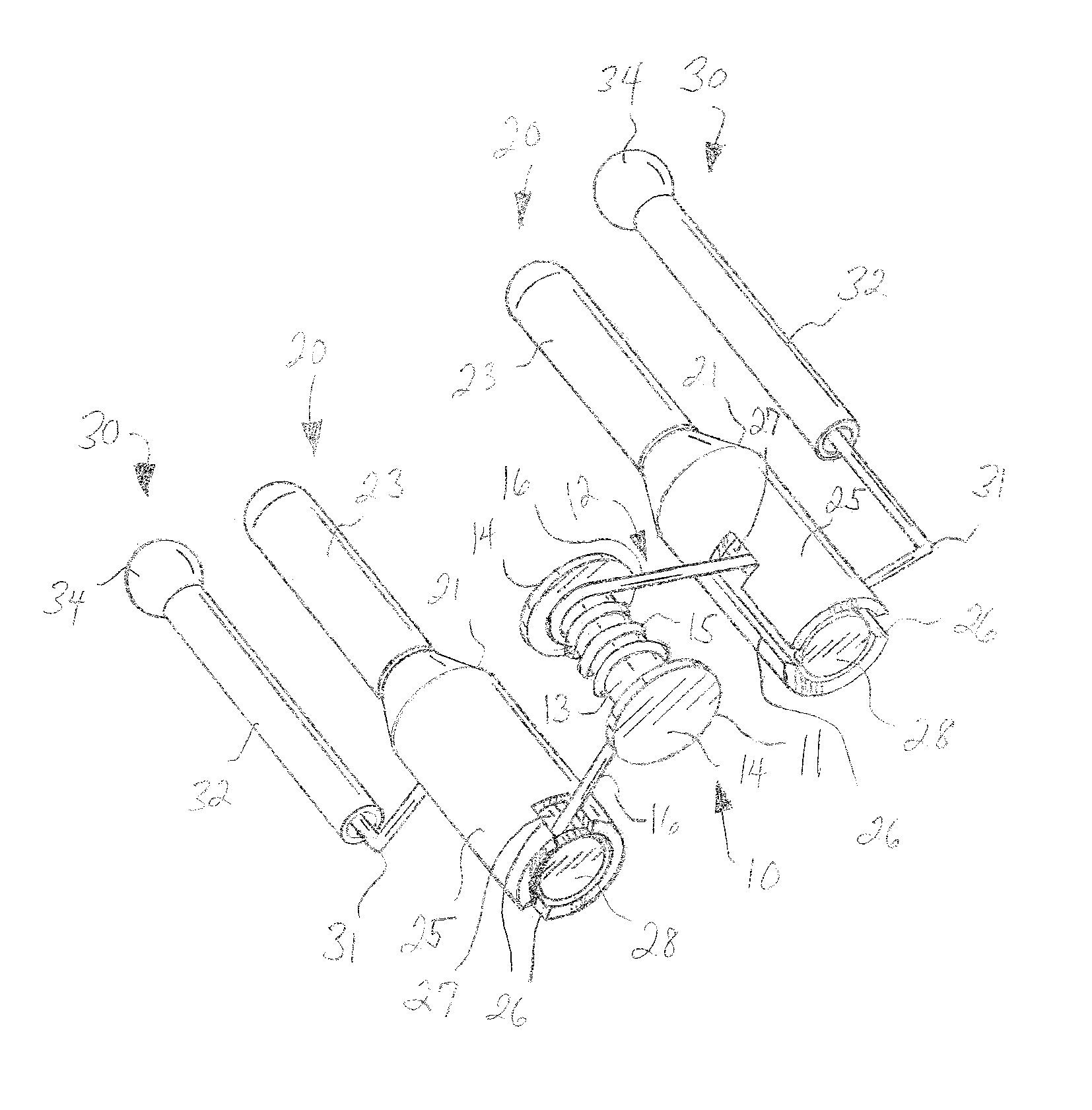Spring-biased nasal molding device
a molding device and bias technology, applied in the field of orthopaedic appliances, can solve the problems of multiple manual adjustments, iatrogenic triangulated nostril deformation, limited correction achieved by current surgical techniques,
- Summary
- Abstract
- Description
- Claims
- Application Information
AI Technical Summary
Benefits of technology
Problems solved by technology
Method used
Image
Examples
Embodiment Construction
[0016]With reference to the drawings, the spring-biased nasal molding device or appliance will now be described in detail with regard for the best mode and preferred embodiment or embodiments, along with its method of use in correcting cleft lips. In general, the nasal molding device is an orthopedic appliance structured and adapted for shaping and molding the cartilage, tissues, etc. of the nose, upper mouth, gums and upper lip of infants having unilateral or bilateral cleft lips in order to promote symmetry and proper morphology of these anatomical features prior to the corrective surgical procedures used to close the cleft. The nasal molding device is self-supporting and self-retaining on the patient, such that the need for adhesive tape or elastic members to maintain the device on the patient is obviated or greatly minimized. The nasal molding device is easily sized and oriented relative to each patient, and the device applies continuous pressure during the corrective process.
[0...
PUM
 Login to View More
Login to View More Abstract
Description
Claims
Application Information
 Login to View More
Login to View More - R&D
- Intellectual Property
- Life Sciences
- Materials
- Tech Scout
- Unparalleled Data Quality
- Higher Quality Content
- 60% Fewer Hallucinations
Browse by: Latest US Patents, China's latest patents, Technical Efficacy Thesaurus, Application Domain, Technology Topic, Popular Technical Reports.
© 2025 PatSnap. All rights reserved.Legal|Privacy policy|Modern Slavery Act Transparency Statement|Sitemap|About US| Contact US: help@patsnap.com



